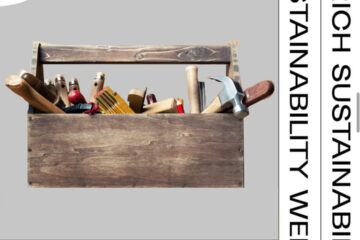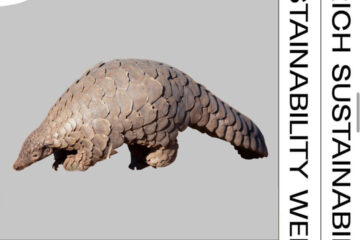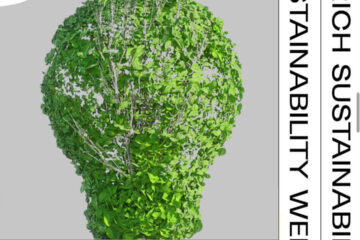Day review written by Louisa Forestier.
It’s getting louder: the word transdisciplinarity
The Thursday of this year’s Sustainability Week Zurich (NHWZ) was dedicated to the theme of behaviour change. Eight events were held on this topic – each one addressing the following questions differently: What steps do we, as individuals or institutions, need to take now to secure the path to a sustainable future? What are existing approaches that need to be enhanced? Louisa Forestier, industrial design student at the Zurich University of the Arts (ZHDK) and core team member of NHWZ 2022 attended three of these events with the one intention: to find parallels.
In Wädenswil, at the Reidbach Campus of the Zurich University of Applied Sciences, she met Nathalie Neff, a graphic designer, and Oliver Bieri, an environmental engineer student. Two invited guests of the event Ecological Travel Stories. Both shared their remarkable journeys and how they explicitly renounced travelling by air. “If you travel sustainably, you experience adventure. If you fly, you miss out on everything that could happen in between,” said Oliver.
The road to sustainability – an adventure too?! Peter Edwards, ecologist, sees it as the challenge of our time. He was a speaker during the Sustainability Science Dialogue – another event that took place on Thursday as part of the NHWZ at the ZHdK. The aim of the event was to bring together researchers with artists and designers to start a debate on shared values, visions and paths towards sustainability. Transdisciplinarity became tangible – in the form of conversations, shown projects or collaboration plans for the future. Will we find a path to sustainability through it? If so, how are students at Zurich’s five universities prepared for transdisciplinary work?
With this question in mind, Louisa Forestier left this event and became an observer in the last event of the day: Improvisational Theatre – Workshop, also at the ZHdK. Two theatre pedagogues and eight people from other diverse disciplines, who did not know each other beforehand, stood in one room. Through various exercises and narrative improvisations, they confronted current issues of sustainability. The individuals developed into a dynamic group and impressive scenes emerged.
In retrospect, the workshop shows two things. On the one hand, how complete strangers can meet and work together in a given setting with openness, without prejudices and without great expectations of the other person. On the other hand, how to get the best out of a situation with the minimum of resources. Does such an experience, as the participants of this workshop were able to experience, lay the foundation for successful transdisciplinary projects? One thing is certain: sustainability is multi-faceted and cross-thematic. Why deal with it in individual disciplines when a more inclusive way to reach it can be found through collaboration between several fields.


